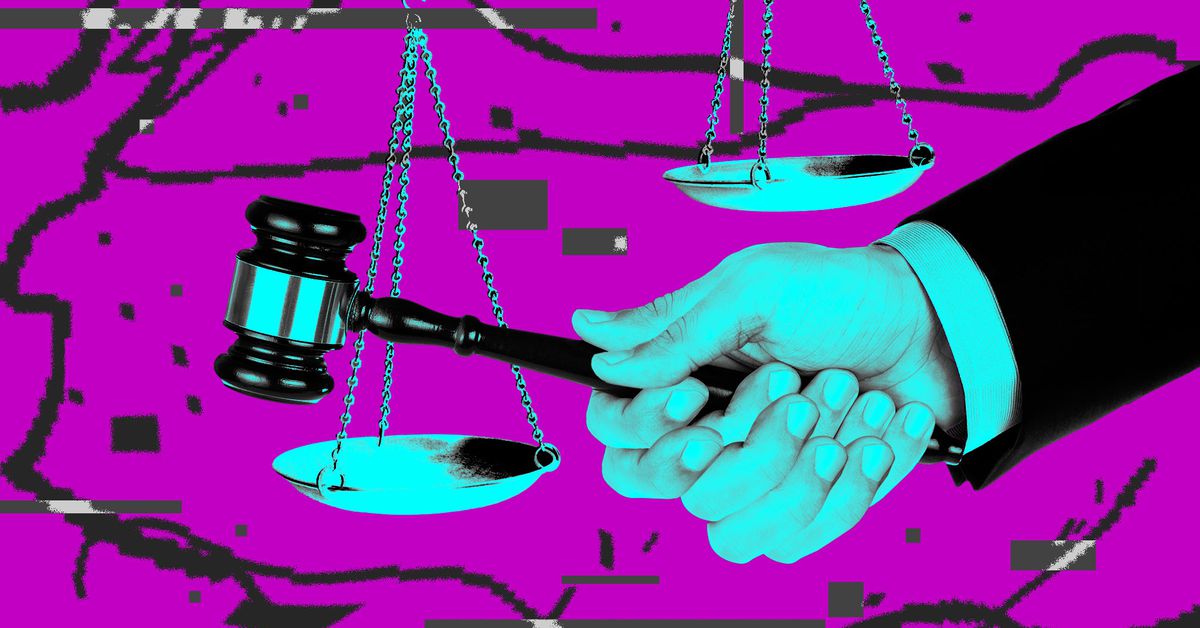A bipartisan group of senators introduced a new bill to make it easier to authenticate and detect artificial intelligence-generated content and protect journalists and artists from having their work gobbled up by AI models without their permission.
The Content Origin Protection and Integrity from Edited and Deepfaked Media Act (COPIED Act) would direct the National Institute of Standards and Technology (NIST) to create standards and guidelines that help prove the origin of content and detect synthetic content, like through watermarking. It also directs the agency to create security measures to prevent tampering and requires AI tools for creative or journalistic content to let users attach information about their origin and prohibit that information from being removed. Under the bill, such content also could not be used to train AI models.
Content owners, including broadcasters, artists, and newspapers, could sue companies they believe used their materials without permission or tampered with authentication markers. State attorneys general and the Federal Trade Commission could also enforce the bill, which its backers say prohibits anyone from “removing, disabling, or tampering with content provenance information” outside of an exception for some security research purposes.
(A copy of the bill is in he article, here is the important part imo:
Prohibits the use of “covered content” (digital representations of copyrighted works) with content provenance to either train an AI- /algorithm-based system or create synthetic content without the express, informed consent and adherence to the terms of use of such content, including compensation)



A bit late now, isn’t it?
All the big corporations have already trained most of their current ai, so all this does is put the up and comers at a disadvantage.
It could halt the progress of improving their models and stagnate the whole technology.
That being said, it only halts progress for American companies. Other countries will happily ignore this law and grow beyond our capabilities. I’m not sure if that’s better or worse than the current situation.
Reminds me of Russia before WWI began. They realized they had fallen horribly behind the rest of the world in terms of military technology, so they called an arms limitation treaty conference where they pushed for basically every country in the world to agree to stop inventing any new weapons of any kind.
How’d that work out for them? Answer? Not well. History repeats itself, so here we go!
From what I understand the next rounds of ai are being trained on further refined versions of the same datasets and supplemented with synthetic data.
The damage to existing copyrighted content is already done.
Source: I’m a random internet user
It’s all still there. No damage was done.
Well, perceived damage anyway. I can’t speak to how IP owners have been effected by LLMs, and I don’t believe it would be easy to quantify.
Seeing as laws can’t be applied retroactively, what would have been the alternative?
deleted by creator
People’s attention spans are 5 seconds long, and art/culture change constantly.
If you prohibit them from training on new content, the models will age super poorly, and they’ll fall into disuse.
It wouldn’t be prohibited. It would just mean that the likes of Reddit or Facebook can charge more for “consent” to train on their content.
So stop using reddit.
You want to convince everyone to stop using Reddit, Facebook, etc. so that LLMs go away? You know that’s not going to work.
Not “go away” so much as “become dated and useless”.
Well as long as you are honest about your motivations I can give you that much.
I don’t want Disney destroyed. I want them to pay creatives well and stop with their legal/lobbying games. That’s the difference, I want people to do the morally correct thing you want to punish people.
I’m not sure what the dishonest motivations would be; I don’t really have a problem with content generators, other than;
To the first point; If they (OpenAI, Adobe, Disney, et al) hired a bunch of people, paid them a fair wage to generate art (text, images, whatever), got permission (contractual, with residuals), trained a model, then used it responsibility (for concepts and drafts), then sure; have your models and use 'em.
To the second point; I mentioned that the models aren’t good, and it’s because they aren’t actually creating anything, just mashing old content together. I also mentioned before that the models need to be used responsibly; You can’t just hit “generate” and ship it as final product. You need editors and artists to follow up on the model output. The model should be used to make tedius work easier, not replace talented artists.
you could use the models to train the models to get better at making new things.
Not really. They start hallucinating pretty quick.